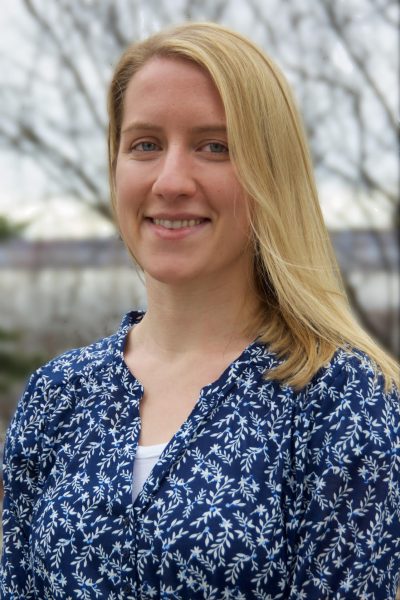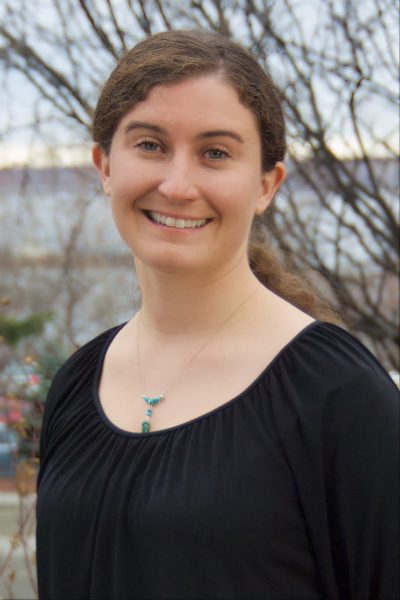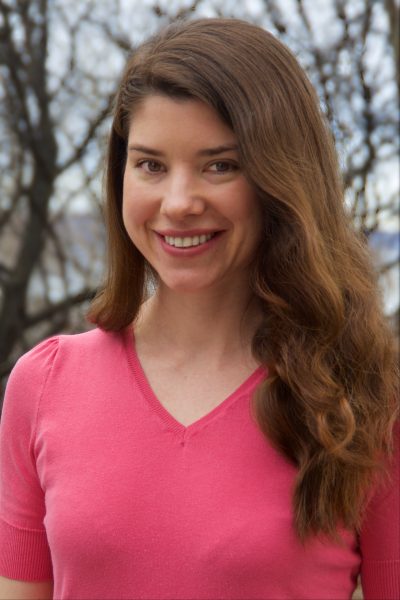Alaska Sea Grant chooses three new state fellows
May 19, 2016
Carol Kaynor
907-474-6705

Three new Alaska Sea Grant state fellows will gain a year of professional experience in marine policy beginning this summer. This year’s fellows — Sarah Apsens, Jane Sullivan and Jennifer Marsh — are all graduate students in the University of Alaska Fairbanks School of Fisheries and Ocean Sciences.
Sarah Apsens is close to completing a master's degree in fisheries. She has been placed with the National Park Service in Anchorage, potentially looking at whitefish habitat or assessing oil spill impacts on intertidal communities. Her work will include data collection, statistics and writing.
“I know by working with NPS that I will get exposure to a wide array of habitat types and management issues,” Apsens said. “I am interested to see how NPS utilizes science to preserve and manage the parks’ many natural resources and educate the public.”

Jane Sullivan, also near completion of her master's degree in fisheries, will work with the National Oceanic and Atmospheric Administration's Sustainable Fisheries Division in Juneau. Her projects may include improving sampling design and protocol in the fisheries observer program or best practices for incorporating observer data into stock assessments.
“I see myself working at the interface between fisheries science and management,” Sullivan said. “My long-term goal is to work with a state or federal agency in Alaska, and I hope to use my background in quantitative fisheries to generate tools that inform policy makers.”
Jennifer Marsh is pursuing a doctorate in fisheries. She will be working on several projects with NOAA Fisheries (National Marine Fisheries Service) in the Habitat Conservation Division in Anchorage, including updating the essential fish habitat section for the Arctic Fisheries Management Plan.
Marsh is particularly enthusiastic about that project. “One of the three potential target species identified in the fisheries management plan is Arctic cod, which is the focal species of my dissertation research,” she said.

“This year we were lucky to have six opportunities for the three fellows to choose from,” said Paula Cullenberg, Alaska Sea Grant director. “NMFS agreed to fully fund their second fellow, enabling us to stretch our dollars to support three fellows. I was impressed with the caliber of the applicants this year and all of the hosts noted their strong credentials.”
Sullivan said she is excited about the mentorship available through the fellowship, and Marsh looks forward to expanding her technical skills and learning more about the fisheries management process. Apsens said, “The Alaska Sea Grant fellowship seems like an excellent opportunity to get my foot in the door with an organization and gain valuable work experience.”
The fellowship, launched in 2015, is geared toward graduate students interested in planning and implementing marine and coastal policies in Alaska. The program matches fellows with hosts in state or federal agencies in Alaska for a 12-month professional experience. First-year fellows Matt Robinson, at the North Pacific Fishery Management Council, and Marysia Szymkowiak, with NOAA Fisheries, will complete their fellowships this summer.
Alaska Sea Grant shares the cost of the stipend with agency hosts. Recruitment for next year’s hosts will begin in fall 2016. Prospective fellows can apply in February 2017.
ON THE WEB: Visit the Alaska Sea Grant Fellowship Program webpage.
ADDITIONAL CONTACTS: Paula Cullenberg, Alaska Sea Grant director, paula.cullenberg@alaska.edu, 907-274-9692


